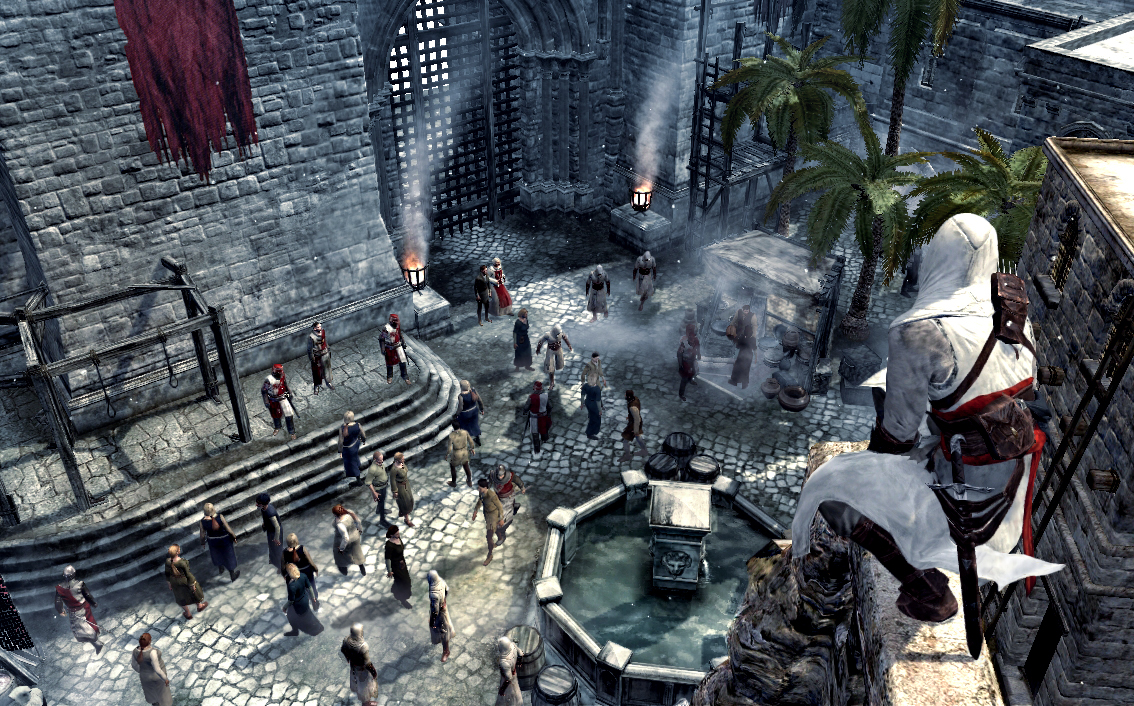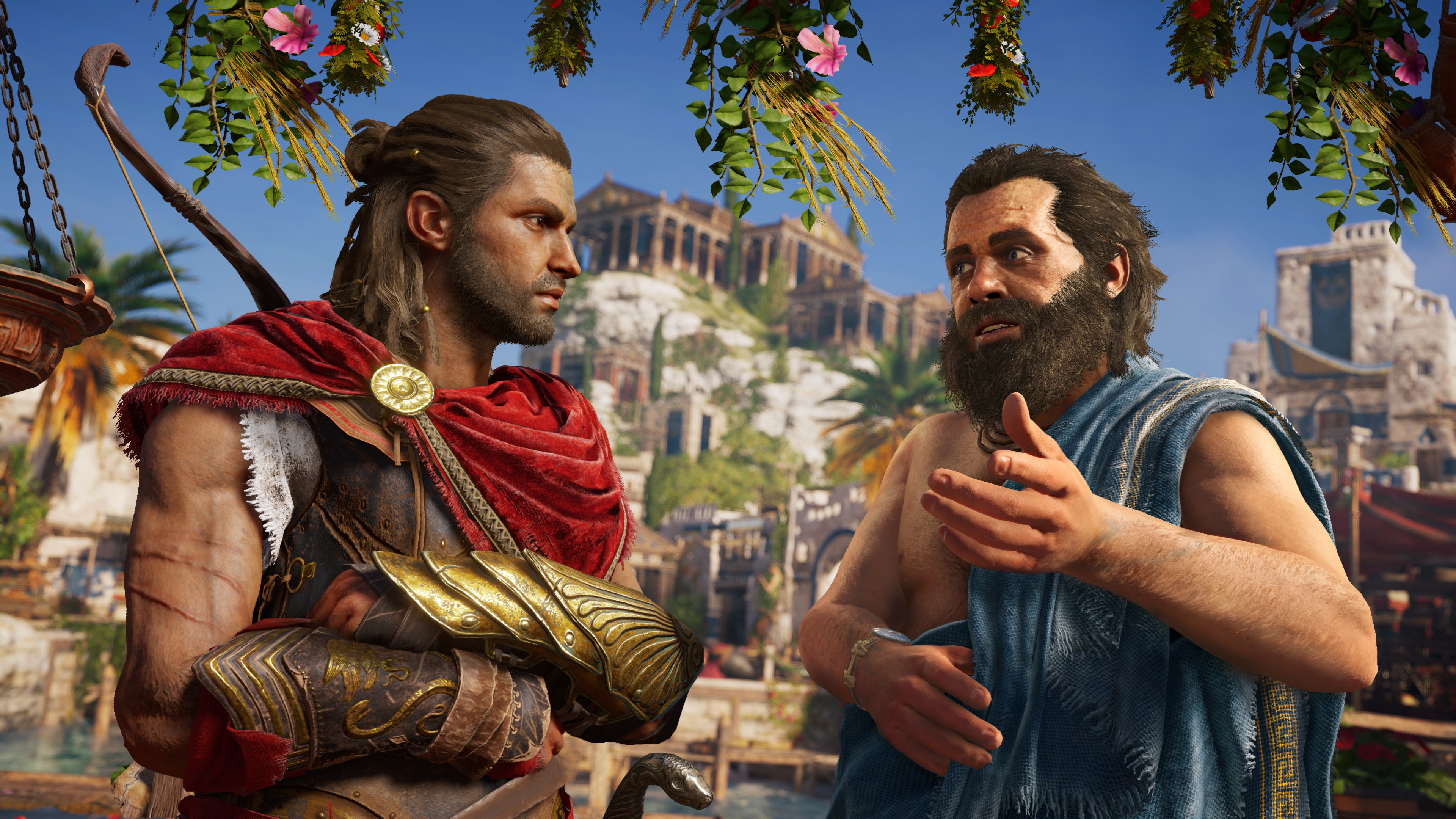It’s time for Assassin’s Creed to end
The Assassin's Creed series has gotten pretty far from its roots

Shortly before Assassin’s Creed IV: Black Flag came out, I wrote about how Ubisoft had an endpoint in mind for its long-running series. Essentially, Ubisoft had some wiggle room as to how many entries it would ultimately produce, but there is a definite conclusion for the Assassin’s Creed narrative in mind, and the company will get there someday.
As a fan of the series since the very first installment, I think “someday” has come.
- PS5 review: The future of console gaming is here
- Xbox Series X review: The ultimate Xbox
- ALERT: Cheapest OLED TV ever is $400 off right now
For thirteen years, fans have eagerly awaited each new installment in this ambitious action/stealth hybrid. And almost every year, they’ve been rewarded with something passable, at worst, and incredible, at best. But after sinking more than 40 hours into Assassin’s Creed Valhalla — and enjoying the vast majority of them — it seems as though the series doesn’t have much left to say.
What began as an ambitious sci-fi/thriller narrative based on real history has settled into a never-ending tug of war between two vaguely defined fictional entities. And while there’s nothing wrong with Assassin’s Creed Origins, Odyssey and Valhalla from a mechanics perspective, the games have gotten bigger and bigger, without much narrative payoff to accompany the length and breadth.
Assassins and Templars

I know it’s hard to remember what happened before 2020 at this point, but think back to 2007, if you can. It was nothing short of a magical year for gaming, with series like BioShock, Mass Effect, Uncharted and Portal making their debuts. Assassin’s Creed was yet another 2007 project, debuting on November 13, just before the holiday rush.
From the beginning, fans and critics were split on Assassin’s Creed. Almost everyone praised its inventive concept, tight parkour and lush graphics. But the game’s structure was (and still is) a point of contention. Unlike Origins/Odyssey/Valhalla, which are about traversing huge worlds and completing varied side missions along the way, the first AC was laser-focused, and sparse in its mission variety.
The game’s premise was exceedingly simple: The game was split into seven “Memory Blocks.” In each block, you’d explore part of a city, complete a few side missions, then plan and execute the perfect assassination of a high-profile target. Open combat was still present, but stealth was the main focus here.
Get instant access to breaking news, the hottest reviews, great deals and helpful tips.
Every single activity in the game was in service of these assassinations: Climbing Eagle Towers and syncing your viewpoint revealed side missions. The side missions helped you gather intel about the target. The more of them you did, the better your resources for the assassination would be. Then, you’d plan your attack, dispatch the target, watch a long, expository cutscene where the target explains his or her motives in painstaking detail (that part hasn’t changed, at least) and make a getaway. That was it. With the exception of a few boss fights, that was the whole game. And, love it or hate it, you have to admire its focus.
What made Assassin’s Creed interesting, though, is that you weren’t just playing out a totally fictional story. The main character, Altaïr, actually had very little in the way of a “personal” narrative or goal to achieve. Instead, the game was about a very real event, The Third Crusade, and two very real organizations that fought in it: the Order of Assassins and the Knights Templar.
It would take a whole history book to give a thorough account of these two organizations, but Assassin’s Creed got the basics right on both counts. The Assassins were a group of Syrian killers who took out key targets among the European invaders. The Templars were an order of Christian soldiers who believed the Holy Land belonged to them by right. The only major liberty the game took was in assuming that both organizations had turned into secret societies, and persisted into the present day.
(It’s worth noting that Templar conspiracies are a dime a dozen in thriller novels, so Assassin’s Creed was by no means the first media to make this connection. In fact, both the Assassins and the Knights Templar play major roles in Dan Brown’s bestselling Robert Langdon series.)
The bottom line is that Assassin’s Creed began life as a grounded, focused game with a profound ideological conflict at its center: Does the modern world belong to religious fundamentalists, or dangerous men who oppose them by any means necessary?
Recent Assassin’s Creed entries

Over the years, however, the series focus has shifted and become blurrier. The Assassins and the Templars, we learned, weren’t just medieval secret societies. Instead, they had roots going back to ancient Greece, with links to a “precursor” race of enlightened humans called the Isu. As such, the conflict no longer had any “Islamic Golden Age vs. Christian barbarism” overtones. It was just two secret societies, forever at war, with neither one able to claim the upper hand.
The goals of the Assassins and the Templars, too, have become vaguer. The Templars want to control mankind — why, and to what end, is not clear — while the Assassins want to stop the Templars. It’s a broad enough backdrop to fill in the banks for a variety of historical settings, but it doesn’t make for a compelling metanarrative, particularly when the modern-day segments of the story feel so directionless.
(I do give the Origins/Odyssey/Valhalla trilogy credit for at least trying to engage us with a new modern protagonist, Layla Hassan, and another real-world threat that requires her immersion in the Animus. Assassin’s Creed Unity was a particular nadir for the modern-day stuff; in the end, you learn that the entire game was essentially a Templar red herring.)
In the meantime, the series has shifted focus to more personal narratives about its protagonists. Bayek of Siwa had to avenge his son; Alexios had to reunite his family; Eivor had to settle a new home for his clan. In Odyssey and Valhalla, hunting down Templar agents isn’t even part of the main plot; it’s a side activity that you can do more or less at your leisure. As such, the Templars don’t have a strong connection to the story — and the protagonists don’t have strong connections to the Templars.
As I write this, I’ve sunk about 45 hours into Assassin’s Creed Valhalla, and I believe I’m about halfway through the game. I’ve met a few Assassins, and even carried out assignments for them, but Eivor isn’t an Assassin, and has no desire to join their organization. He wears his Hidden Blade openly, and hunts the Templars only because one of them personally wronged him. Whatever else you can say about the game (and I generally like it), it’s not profoundly interested in conspiracies, secret societies or hidden knowledge — ideas that make the whole “Templar conspiracy” subgenre, including the first Assassin’s Creed, work so well.
An end to Assassin’s Creed

While I don’t necessarily think Ubisoft should stop making historical action games, I do think it could do something to make them distinct from the Assassin’s Creed franchise. The company already knows that Assassin’s Creed has to end someday, and that seems like a preferable outcome to the story spinning its wheels for another half-dozen entries.
At its core, Assassin’s Creed is a series that asks, “What if the history you know is colored by powerful forces just outside of your understanding?” That’s a great premise, and it requires a great sendoff. Whatever Ubisoft decides to do, I hope it sends the series off in style — and I hope it leaves us wanting more, rather than thinking that it went on too long.

Marshall Honorof was a senior editor for Tom's Guide, overseeing the site's coverage of gaming hardware and software. He comes from a science writing background, having studied paleomammalogy, biological anthropology, and the history of science and technology. After hours, you can find him practicing taekwondo or doing deep dives on classic sci-fi.
